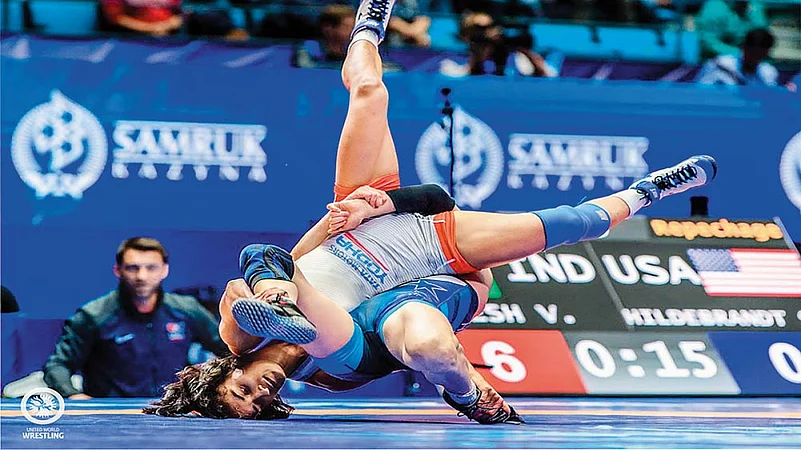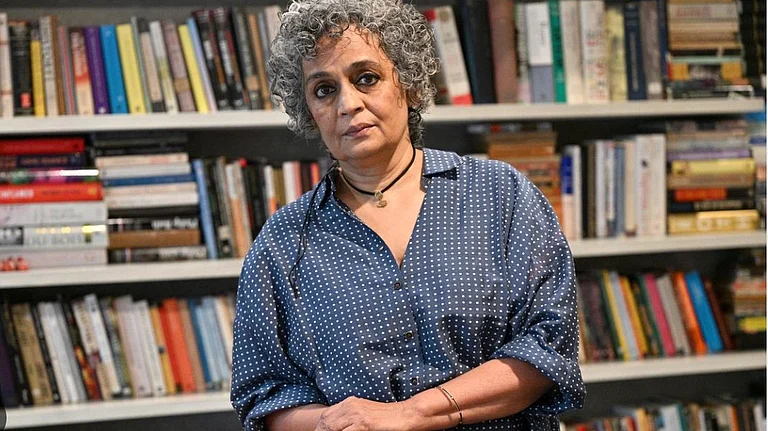Finally the long wait is over and, after a year, the Olympics is finally upon us. I feel proud that all seven Indian wrestlers at Tokyo 2020 are from Haryana. Strikingly, four of them are women; all are medal contenders. These are changing times in Indian sports and post Rio 2016, there has been a growth in most Olympic disciplines. Wrestling has gained in stature too.
If cricket caught India’s imagination after the World Cup win in 1983, the two medals—Sushil Kumar’s silver and my bronze—at the 2012 London Olympics were surely a game-changer for wrestling in India. Most importantly, it forced a change in the conservative mindset of those playing the sport in the rural hinterland of northern India. It was evident from the number of women taking up wrestling—their guardians saw future careers in sport.
Wrestling is in Haryana’s soil. A game which requires raw power and stamina is met by the robust physique of the people. Wrestling has been an integral part of rural India, but for international success, there were barriers to overcome.
The introduction of foreign coaches, better infrastructure, injury management and exposure tours have immensely helped wrestlers. I remember that India got their first foreign coach from Georgia in 2003. It was only after this that we won a wrestling medal (a bronze) in the 2008 Beijing Games. It was Sushil’s first Olympic medal and it meant a lot for us. Today, all our wrestlers get crucial inputs from foreign coaches and two of our top medal contenders in Tokyo—Bajrang Punia and Vinesh Phogat—have been fully trained by foreign coaches.
Winning a medal at the Olympics is the ultimate challenge. All our wrestlers, all Olympic debutants except Vinesh, will be under a lot of pressure. Our careers show that we have improved with experience. But there are no guarantees that we will finish with a lot of medals on the back of good performances in world, Asian or other international tournaments before Tokyo.
It is great to see Vinesh shaping up so well for Tokyo. She not only carries the weight of expectations but also that of the legacy of the Phogats. Having lost in the quarterfinals to a Chinese girl in Rio, she’s hungry for success. The number one ranking sits perfectly on her and if she wins a medal, it will be the perfect tribute to a family that has played a crucial role in breaking stereotypes and lifting the image of women’s wrestling.
The fact that new girls like Sonam and Anshu Malik are emerging from rural Haryana is a great sign of gender equality. Sport is a great messenger of social values and our sportswomen can change orthodox mindsets.
I feel the government, through the national federation and the sports ministry, has been doing a wonderful job in giving the top athletes the facilities they need. We didn’t have the benefit of the Target Olympic Podium Scheme. I don’t grudge this but yes, on hindsight, given the talent we had, a similar scheme during our playing days would have lifted our performances and saved many careers that went astray due to lack of funds and care.
I feel the sports ministry should increase the budget for wrestling. The mud akhadas look very macho and romantic but sport is about science too. The Khelo India initiative should target the right areas and offer proper infrastructure to young wrestlers. We have taken the first big step of allowing our girls to excel in sport. Now we need to inject more confidence in the ecosystem and that should start at the grassroots.
Covid has made Tokyo 2020 a level playing field and our Indian wrestlers stand a great chance to excel. They have prepared well and worked hard for almost a year. It’s time to look the opponent in the eye.
(This appeared in the print edition as "Roses From Tokyo")
(As told to Ashutosh Sharma)
Dutt won a 60 kg freestyle wrestling bronze medal at the 2012 London Olympics





















